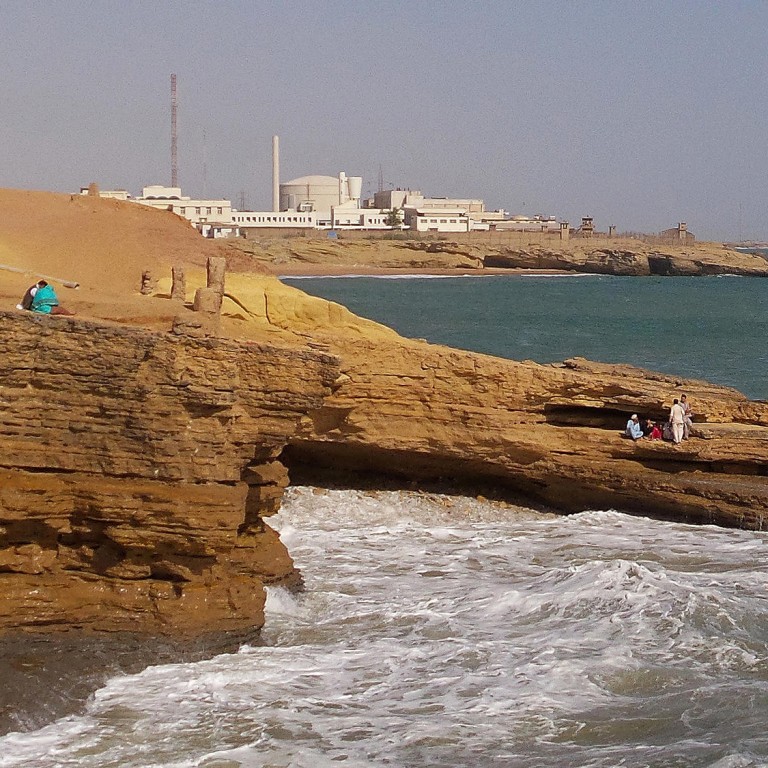
Outcry and fear grow as Pakistan builds new nuclear reactors in Karachi
Two new plants are being supplied by China, but critics say they are too close for comfort to Karachi, a volatile metropolis of 20m people
World leaders have fretted for years that terrorists may try to steal one of Pakistan's nuclear bombs and detonate it in a foreign country.
But some Karachi residents say a potential nuclear nightmare could unfold in Pakistan's largest and most volatile city.
On the edge of Karachi, on an earthquake-prone seafront vulnerable to tsunamis and not far from where al-Qaeda militants nearly hijacked a Pakistan navy vessel last fall, China is supplying two large nuclear reactors for energy-starved Pakistan.
The new plants, utilising a cutting-edge design not yet in use anywhere in the world, will each supply 1,100 megawatts to Pakistan's national energy grid. The reactors are being built next to a much smaller 1970s-era reactor located on a popular beach where fishermen still make wooden boats by hand.
But the new ACP-1000 reactors will also stand less than 30km from downtown Karachi, a dense and rapidly growing metropolis of about 20 million residents.
Now, in a rare public challenge to the Islamabad government's nuclear ambitions, some Pakistanis are pushing back.
"You are talking about a city one-third the population of the United Kingdom," said Abdul Sattar Pirzada, a Karachi lawyer who is seeking to get the project halted. "If there would be an accident, this would cripple Karachi, and if you cripple Karachi, you cripple Pakistan."
According to the US Nuclear Regulatory Commission, a new reactor should be sited away from very densely populated areas.The US government has also expressed concern about the initiative, in particular about China's role in providing nuclear technology to Pakistan.
Pakistan, one of the few developing countries still pursuing civilian nuclear energy options since the 2011 Fukushima disaster in Japan, has three operative nuclear power plants, including the Canadian-built reactor in Karachi, but has turned to China for help expanding its capacity. Efforts are under way to double the size of the Chashma Nuclear Power Plant in northern Punjab province as well as to build the new Karachi reactors.
"The risks are there. You cannot discount them, but you prepare for them," said Khwaja Asif, Pakistan's water, power and defence minister. "We are a nuclear power, so don't underestimate us."
China developed the ACP-1000 reactor, which cost about US$5 billion each to build, after studying and refining the design of a reactor that France built in China in the 1980s. The China National Nuclear Corp is now supplying the ACP-1000 reactor to Pakistan, despite an international ban on the transfer of nuclear technology to Pakistan because of the country's refusal to sign the Nuclear Nonproliferation Treaty.
"We are going to be the guinea pigs," said Arif Belgaumi, a Karachi architect who wants the international community to pay closer attention to Pakistan's plans.
China joined the Nuclear Suppliers Group - whose members agree not to transfer to treaty non-signers any technology that could be used to develop a nuclear weapon - in 2004. But it claims it had already promised to help Pakistan, allowing it to continue developing the reactors.
Beijing is helping Pakistan build reactors at the same time that the Obama administration is trying to implement a 2008 deal that would smooth the way for US companies to invest in new nuclear power plants in India.
"China's expanding civilian nuclear cooperation with Pakistan raises concerns, and we urge China to be transparent regarding this cooperation," the US embassy said last week.
Until now, Pakistani leaders have faced little public discontent over the country's nuclear advances. But there are concerns that Pakistani technicians won't be able to operate or maintain the Chinese nuclear technology.
Karamat Ali, chairman of the Pakistan Institute of Labor Education and Research, noted that the world has already experienced three major nuclear accidents - at Three Mile Island in the United States in 1979 and at Chernobyl in the former Soviet Union in 1986, and the Fukushima disaster in Japan in 2011.
"Those are three highly advanced countries," Ali said. "This is Pakistan. We don't live on technology and science. In fact we are quite allergic to that."
But Azfar Minhaj, general manager of Karachi's reactor project, said Pakistan sought the ACP-1000 reactor because it makes a radiation leak far less likely.
Each reactor will have a structure capable of withstanding the impact of a commercial airliner, he said, adding that there is also an elaborate filtration system and that the reactor will be able to cool itself for 72 hours without power.
Mark Hibbs, a senior associate at the Carnegie Endowment for International Peace, said: "If there was a lesson we learned from the Fukushima accident, it's that, if you are going to get into the nuclear business, and if you don't have world-class technology, good logistics, enough personnel, a lot of money and experience managing crisis situations, then you are not going to be able to manage a severe accident."
